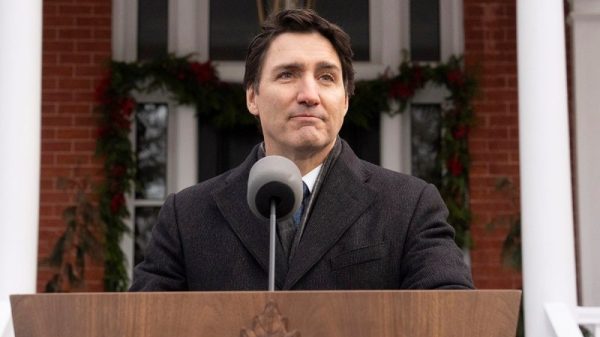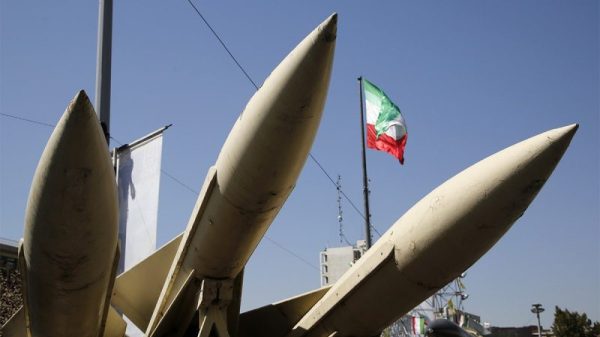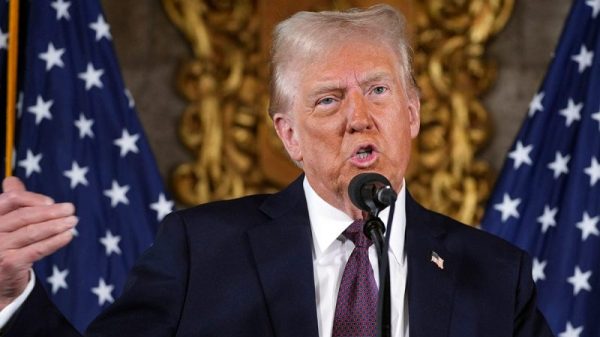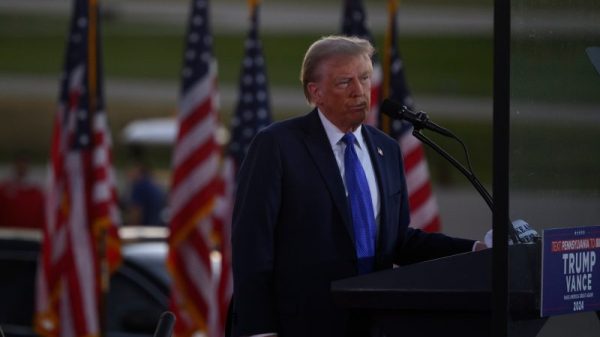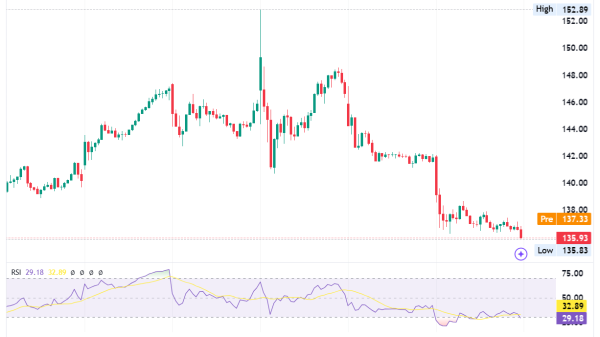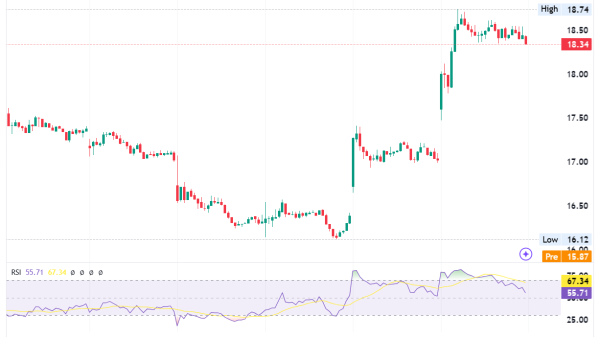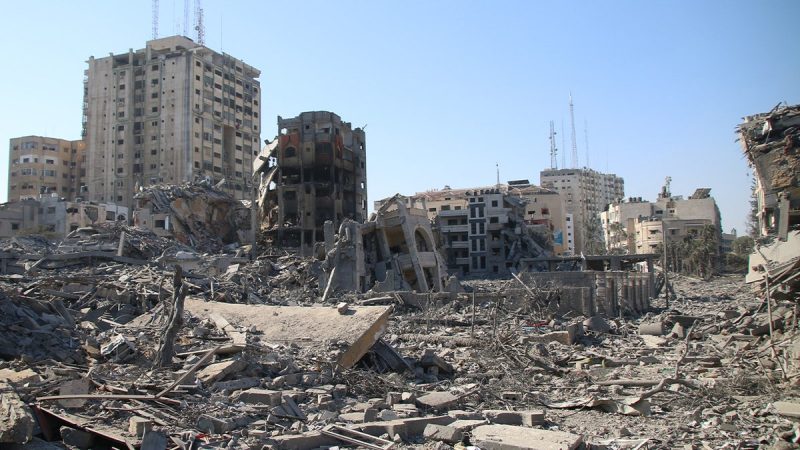JERUSALEM — For most of the past two decades, Hamas, a terrorist group with an extreme jihadist ideology, has governed the Gaza Strip and posed a serious security threat to Israel next door and a broader dilemma for moderate Arab states in the region that might be willing to normalize ties with Israel. It has also destabilized the Palestinian Authority, which rules the other Palestinian enclave in the West Bank, making peace with Israel even more elusive.
Following Hamas’ Oct. 7 attack in which more than 1,200 people were killed and a further 240 taken hostage, Israel’s political and military leadership, with support from the majority of the population – and the backing of the U.S. administration – have made clear that the set-up that once existed in the 25-mile-long coastal strip is no longer viable: Hamas must go.
But if Israel is successful in its endeavor, who would fill the void?
In a Nov. 18 opinion piece published in the Washington Post, President Biden also talked about how ‘the Palestinian people deserve a state of their own and a future free from Hamas.’ He mentioned that the goal should not simply be to stop the war for today, but it should be to end war forever and break the cycle of ‘unceasing violence.’ The president also pointed to the aim of reuniting Gaza with the West Bank and ‘revitalizing’ the Palestinian Authority (PA) in Ramallah.
Israeli Prime Minister Benjamin Netanyahu, however, has pushed back on such an idea and emphasized on several recent occasions that transplanting the PA into a post-war Gaza is not an option.
Hussain Abdul-Hussain, a research fellow at the Foundation for Defense of Democracies, told Fox News Digital that a possible solution could be for the Abraham Accords countries – the Gulf States of the United Arab Emirates (UAE) and Bahrain, who signed normalization agreements with Israel in 2020, and even Saudi Arabia – could definitely play a role in Gaza’s future.
‘We have seen the UAE step up and build a field hospital while offering to build, rebuild three desalination plants,’ he said. ‘Because Hamas has been governing the Strip since 2007, and its Islamist ideology is not the UAE’s taste, Abu Dhabi has not invested much money in the Strip. Now, it is able to invest in Gaza without having to go through Hamas.’
‘This should be looked at as a pilot project, and if it works out, the UAE will be more involved in the Strip and its reconstruction,’ Abdul-Hussain continued, adding that it would not only be reconstructing the infrastructure but also rebuilding a Hamas-free government that is competent and sincere in its quest for peace with Israel.
He also said that such a direction would also help to ‘displace the Qataris,’ who are seen by some critics as sponsors of radical Islamist groups such as Hamas and could be a model emulated in the West Bank – which has also seen a rise in Islamic radicalism and support for Hamas continues to be high there, surpassing the PA, according to recent polls.
Abdul-Hussain said that in contrast to the U.S. administration’s goals of allowing some kind of revitalized PA to control Gaza, a new type of authority in the Strip, with the backing of the Abraham Accords states, could then ‘be expanded to the West Bank.’
An Abraham Accords-type initiative, he concluded, ‘wherein Palestinians themselves welcome peace and strive for it,’ is the only way that ‘Israel will consider letting down its guard and help the Palestinians establish a state.’
‘We would like to see a peaceful Gaza, but there is no magic formula,’ Michael Oren, Israel’s former ambassador to the United States and a former cabinet member of Netanyahu’s previous government, told Fox News Digital.
‘A vast majority of Israelis will not want the PA there,’ said Oren, who is also a historian and author. ‘The PA is corrupt, it is weak and the majority of the population in the West Bank, some 83%, actually prefers Hamas.’
In addition, the former diplomat said, ‘[PA President Mahmoud] Abbas is an antisemite and a Holocaust denier; PA textbooks and videos are every bit as bad as Hamas’, so that is a non-starter.’
Among Gazans – and even the broader Palestinian public – the idea of installing the PA into the Strip is also not wildly popular, Ahed al-Hindi, a senior fellow at the Center for Peace Communications, told Fox News Digital.
‘While the PA may offer a symbolic framework that accrues international recognition, many young Gazans want to see new players, principally drawn from Gaza itself,’ said Al-Hindi, adding that ‘a viable plan to rebuild Gaza requires local buy-in and new blood.’
As images of the widespread destruction of Gaza after more than 50 days of fighting – and as Israeli political and military leaders say their task is far from over – it seems clear that the task of rebuilding is far beyond the capability of any single individual or body.
And the process could take years.
Yitzhak Gal, a research fellow who specializes in Middle East economics and business at the Mitvim Institute in Israel, told Fox that the reconstruction of Gaza would have to be carried out in two stages, with the political and physical rebuilding having to be done in tandem.
Right now, he said, Hamas as a governing body appears to have totally collapsed, and the United Nations Relief and Works Agency, which is the main body dealing with the current humanitarian crisis – and is highly linked to Hamas – will also most likely crumble as Israel progresses with its military goals.
‘Humanitarian catastrophe will become even more acute and the only way to handle this situation in the short-term is with a political solution, agreed upon between Israel and the international community,’ Gal said.
‘We can’t start any reconstruction in Gaza while the war is waging, but still, the people there need to eat and drink, there are babies and there are children, and if you don’t take care of them, then they will suffer,’ he said.
In the long term, Gal estimated that the destruction in Gaza, which is likely four or five times what it was following the 2014 Israel-Hamas war, could cost more than $15 billion to rebuild. He added that it’s important for the reconstruction process to look beyond just replacing what was lost and to rebuild Gaza as a ‘viable and stable society’ and prevent it from ‘deteriorating into the same extremism of recent years.’
‘The reconstruction must be carried out in the framework of a more holistic plan,’ said Gal, adding, ‘There is no benefit in reconstruction or doing anything on the economic sphere if there is no political stability.’
‘It is hard for me to believe that the Americans, Europeans or the Gulf countries will put money into Gaza unless there’s a way to ensure there is a stable, non-Hamas stable government that will make good use of all this money,’ he said.
So, with a possible power vacuum and no single person or entity able to fill it, which global players could play a role?
Nir Arieli, an associate professor of international history at the University of Leeds in the U.K., shared with Fox News Digital a policy paper that puts forward the concept of a multinational force.
Co-authored with Jacob Stoil of the Modern War Institute and Mary Elizabeth Walters, Arieli argues firmly against any Israeli re-occupation of Gaza (Israel unilaterally withdrew from the Strip in 2005) as well as against implanting the PA into the vacuum.
‘If we want to send a message to everyone that we are turning a new page and that we are not going back to the status quo and that we do not want Hamas back in control, then, we argue, a multinational force must be put there to take on three tasks: to provide security, governance and oversee reconstruction,’ he said.
Arieli added, ‘If aid is going to be pouring into Gaza, then having a multinational force in place is in everyone’s interest. It would be a temporary solution because we can’t see that any single actor will be able to step in and take care of such a gigantic task.’
That force – as well as the aid, which has already been entering Gaza during the current crisis – would most likely come from the West, chiefly the U.S. and Europe, as well as the regional countries that signed the 2020 Abraham Accords, such as the United Arab Emirates and Bahrain as well as Saudi Arabia, which some experts believe is still eyeing the possibility of normalizing ties with Israel.



